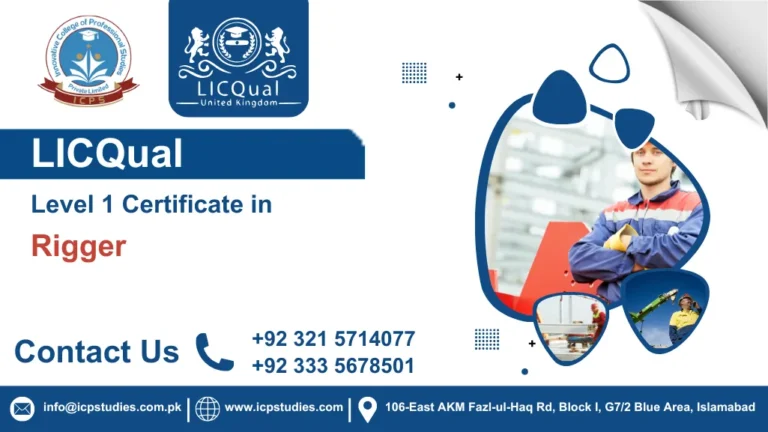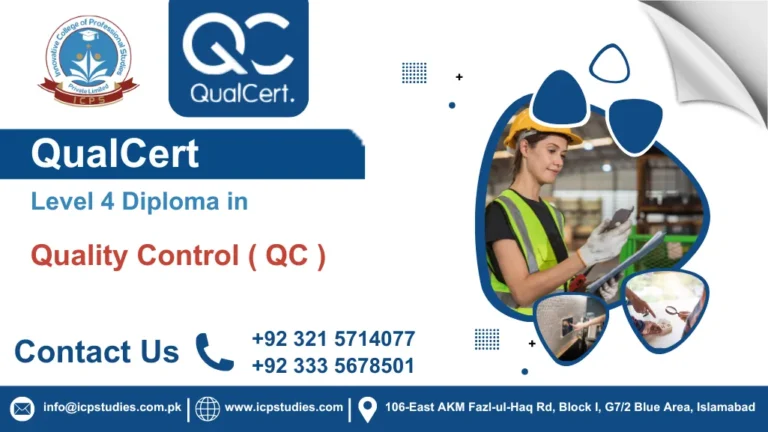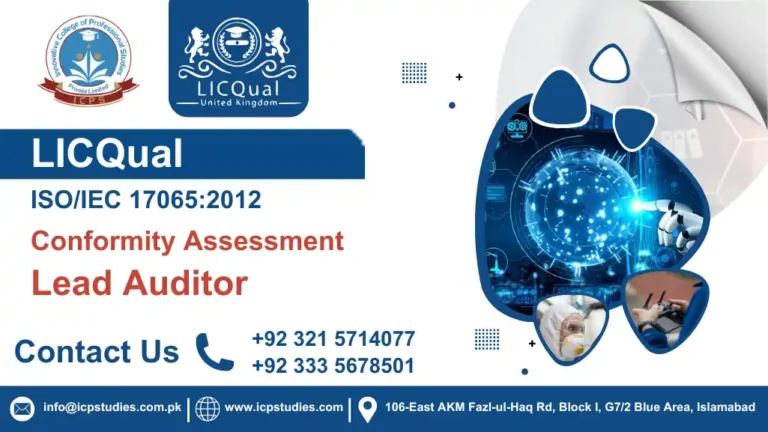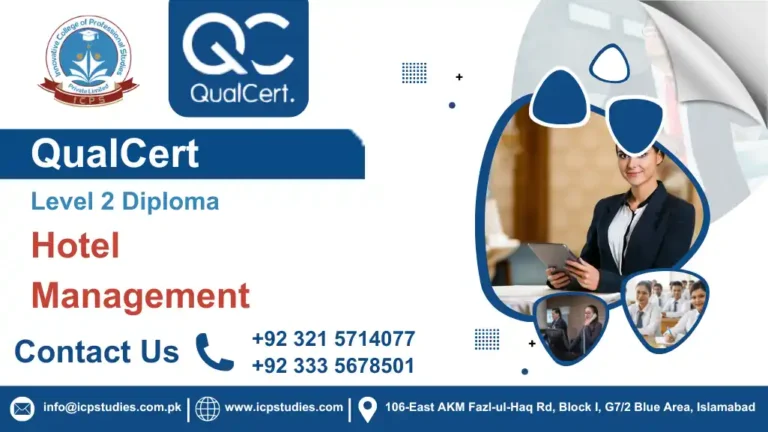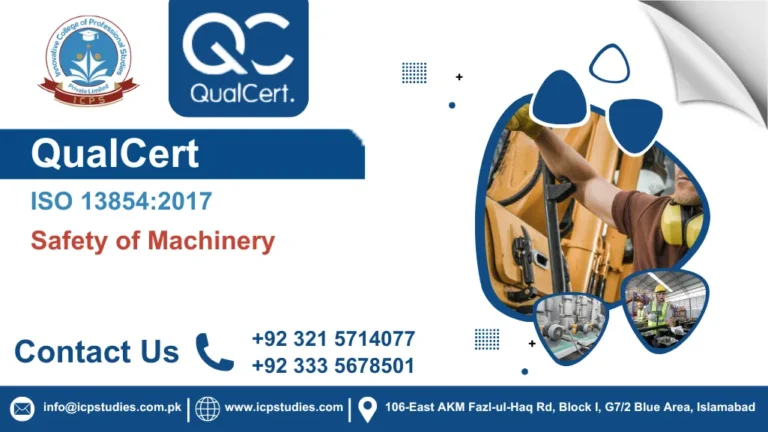In today’s rapidly evolving business landscape, sustainability is no longer just a buzzword; it’s a fundamental aspect of responsible leadership and effective business strategy. Organizations across industries are realizing the importance of adopting sustainable practices to meet the needs of the present without compromising future generations. The QualCert Level 3 Award in Managing Sustainably provides professionals with the essential skills and knowledge to lead sustainability initiatives within their organizations.
The QualCert Level 3 Award in Managing Sustainably is designed for professionals who want to develop the expertise to lead and manage sustainability initiatives effectively. The course covers a wide range of topics, including environmental stewardship, social responsibility, ethical business practices, and long-term sustainable development.
The course covers a range of topics essential for understanding corporate risk management. These include risk identification techniques, methods for assessing and categorizing risks, risk mitigation strategies, and the role of governance in managing corporate risks. Additionally, the course explores the legal and regulatory frameworks governing risk management, ensuring compliance, and the importance of clear communication and reporting on risks.
The QualCert Level 3 Award in Managing Sustainably is a valuable qualification for professionals looking to lead sustainability efforts in their organizations. By completing this course, you’ll gain the knowledge, skills, and confidence to manage sustainability initiatives, reduce environmental impact, and contribute to the social and ethical development of your organization.
If you’re ready to take the next step in your sustainability journey and lead with purpose, this course will provide the tools and frameworks to make a lasting, positive impact. Start today and become a leader in sustainable management!
All About QualCert Level 3 Award in Managing Sustainably
Course Overview
The QualCert Level 3 Award in Managing Sustainably is a comprehensive qualification designed to equip professionals with the knowledge and skills needed to lead sustainability initiatives within their organizations. As businesses increasingly recognize the importance of sustainable practices, this course provides an essential foundation for individuals seeking to manage resources responsibly, integrate environmental and social considerations into business strategies, and promote long-term sustainable development.
This course covers the key principles of sustainability, including environmental stewardship, social responsibility, and economic viability, and helps you apply these concepts in a practical, business-focused context. Whether you are a manager, HR professional, or emerging leader, you will learn how to drive sustainability efforts that not only reduce environmental impact but also enhance organizational performance, engage stakeholders, and create value for society.
By the end of the course, you will be equipped with the tools to implement effective sustainability strategies, measure their success, and lead by example in fostering a culture of sustainability within your organization. Whether you’re starting a new sustainability initiative or looking to build on your existing knowledge, the QualCert Level 3 Award in Managing Sustainably offers the expertise you need to succeed as a sustainability leader.
Study Units
- Introduction to Sustainability Management
- Sustainable Business Practices
- Energy Efficiency and Renewable Resources
- Waste Reduction and Circular Economy
- Sustainability Reporting and Performance Measurement
- Risk Management and Resilience
- Leadership for Sustainability
The QualCert Level 3 Award in Managing Sustainably is designed to be accessible to a wide range of professionals, regardless of their background. However, to ensure that you can fully engage with the course content and get the most out of your learning experience, the following entry requirements are recommended:
- Professional Experience
While formal qualifications are not mandatory, it is recommended that participants have some professional experience in a managerial, leadership, or organizational development role. This background will help you relate the course material to real-world scenarios and apply sustainability principles effectively within your organization. - Basic Knowledge of Sustainability Concepts
A foundational understanding of sustainability, including environmental, social, and economic aspects, would be beneficial. If you don’t have prior knowledge, the course will build your understanding from the ground up. - Proficiency in English
Since the course is delivered in English, participants should have a good level of written and spoken English to understand the course materials, complete assignments, and engage in discussions. - Commitment to Learning
As this course is designed to be flexible and self-paced, learners must be self-motivated and able to manage their time effectively to complete the coursework and assignments. - Access to a Computer and the Internet
The course is typically delivered online, so participants should have access to a computer or mobile device with an internet connection to engage with the course materials and complete assessments.
If you’re unsure whether you meet the entry requirements or need more information, it’s always a good idea to reach out to the course provider to discuss your specific background and situation.
The QualCert Level 3 Award in Managing Sustainably is designed for professionals who want to integrate sustainability into their organizational practices and drive positive environmental, social, and economic impact. This course is ideal for individuals across various sectors who are either currently in or aspiring to roles where sustainability is a key focus. Specifically, this course is for:
- Managers and Team Leaders
Professionals in leadership or managerial positions who want to integrate sustainability into their business strategies, motivate teams, and lead sustainability initiatives. - Human Resources (HR) and Organizational Development Professionals
HR and OD professionals looking to foster a culture of sustainability, develop employee engagement programs, and implement sustainable workplace practices. - Environmental Consultants and Sustainability Practitioners
Professionals working in sustainability, environmental management, or corporate responsibility roles who want to deepen their knowledge and practical skills in leading sustainability initiatives within organizations. - Business Leaders and Executives
Senior leaders and decision-makers who want to incorporate sustainable practices into their corporate strategies to enhance long-term organizational success while addressing environmental and social responsibilities. - Aspiring Sustainability Professionals
Individuals with a strong passion for sustainability who are looking to develop the skills needed to start or advance their career in the sustainability field, whether in corporate settings, nonprofit organizations, or government roles. - Entrepreneurs and Small Business Owners
Business owners seeking to build sustainable business models and practices that align with current environmental and social expectations while driving profitability and growth.
This course is ideal for anyone who wants to play a key role in driving sustainable change, whether within their own organization or as part of a broader sustainability effort. It’s perfect for professionals who are committed to making a positive difference through responsible leadership and the integration of sustainability into everyday business practices.
Learning Outcomes
Gain a thorough understanding of sustainability management principles and their critical role in today’s business environment.
Evaluate the Triple Bottom Line (TBL) approach, which balances economic, environmental, and social dimensions, to drive sustainable outcomes.
Understand how managers play a pivotal role in advocating for sustainability and fostering a culture of sustainability across all organizational levels.
Sustainable Business Practices
Analyze various sustainable business models and practices that contribute to long-term organizational resilience and growth.
Study real-world case studies that highlight successful sustainability strategies in diverse industries.
Develop actionable strategies to embed sustainability into core business areas such as procurement, operations, and marketing, ensuring they align with organizational objectives.
Environmental Stewardship
Recognize the importance of environmental stewardship in achieving organizational sustainability goals and mitigating the effects of climate change.
Explore a variety of methods aimed at reducing the environmental footprint, conserving resources, and promoting ecological sustainability.
Implement Environmental Performance Indicators (EPIs) to monitor progress and continually enhance environmental management practices.
Social Responsibility and Ethical Governance
Examine the ethical aspects of sustainability, focusing on the role of social responsibility in shaping organizational decision-making.
Explore effective stakeholder engagement strategies that foster transparency, build trust, and ensure accountability in sustainability efforts.
Create codes of conduct, policies, and procedures to uphold ethical governance and promote responsible business practices aligned with societal expectations.
Sustainable Supply Chain Management
Delve into sustainable supply chain management and its importance in bolstering organizational sustainability.
Assess the risks and opportunities related to sustainability within the supply chain, including ethical sourcing, labor practices, and environmental impact.
Develop strategies to integrate sustainability across the entire supply chain, from sourcing to distribution, fostering resilience and generating positive social and environmental outcomes.
Energy Efficiency and Renewable Resources
Understand the role of energy efficiency and renewable resources in advancing sustainability and reducing carbon emissions.
Investigate innovative technologies and practices for improving energy efficiency and incorporating renewable energy solutions into operations.
Create and implement energy management plans that optimize resource utilization, reduce consumption, and lower environmental impact.
Waste Reduction and Circular Economy
Study principles of waste reduction, recycling, and the circular economy, aimed at minimizing waste generation and maximizing resource use.
Develop strategies to reduce waste, repurpose materials, and close resource loops in organizational operations.
Evaluate the environmental and economic advantages of adopting circular economy principles, enhancing sustainable resource management and long-term business viability.
Sustainability Reporting and Performance Measurement
Understand the role of sustainability reporting in transparent communication with stakeholders, highlighting organizational goals and achievements.
Learn how to develop Key Performance Indicators (KPIs) and other metrics to measure sustainability performance, enabling data-driven decisions and continuous improvement.
Utilize global reporting frameworks such as GRI (Global Reporting Initiative) and SASB (Sustainability Accounting Standards Board) to align your organization with international sustainability standards.
Risk Management and Resilience
Identify the sustainability-related risks and opportunities organizations face, considering environmental, social, and governance (ESG) factors.
Develop strategies for managing risks, safeguarding organizational assets, and taking advantage of emerging opportunities linked to sustainability.
Enhance organizational resilience by creating adaptive strategies that ensure long-term sustainability amid changing environmental and social conditions.
Leadership for Sustainability
Examine the transformative role of leadership in driving sustainability initiatives and embedding sustainability principles across an organization.
Develop essential leadership competencies to inspire change, mobilize teams, and ensure sustainability is at the core of organizational values and culture.
Analyze real-world case studies of sustainable leadership, drawing actionable insights into effective strategies for leading sustainable organizations and generating positive societal and environmental impact.
FAQs QualCert Level 3 Award in Managing Sustainably


